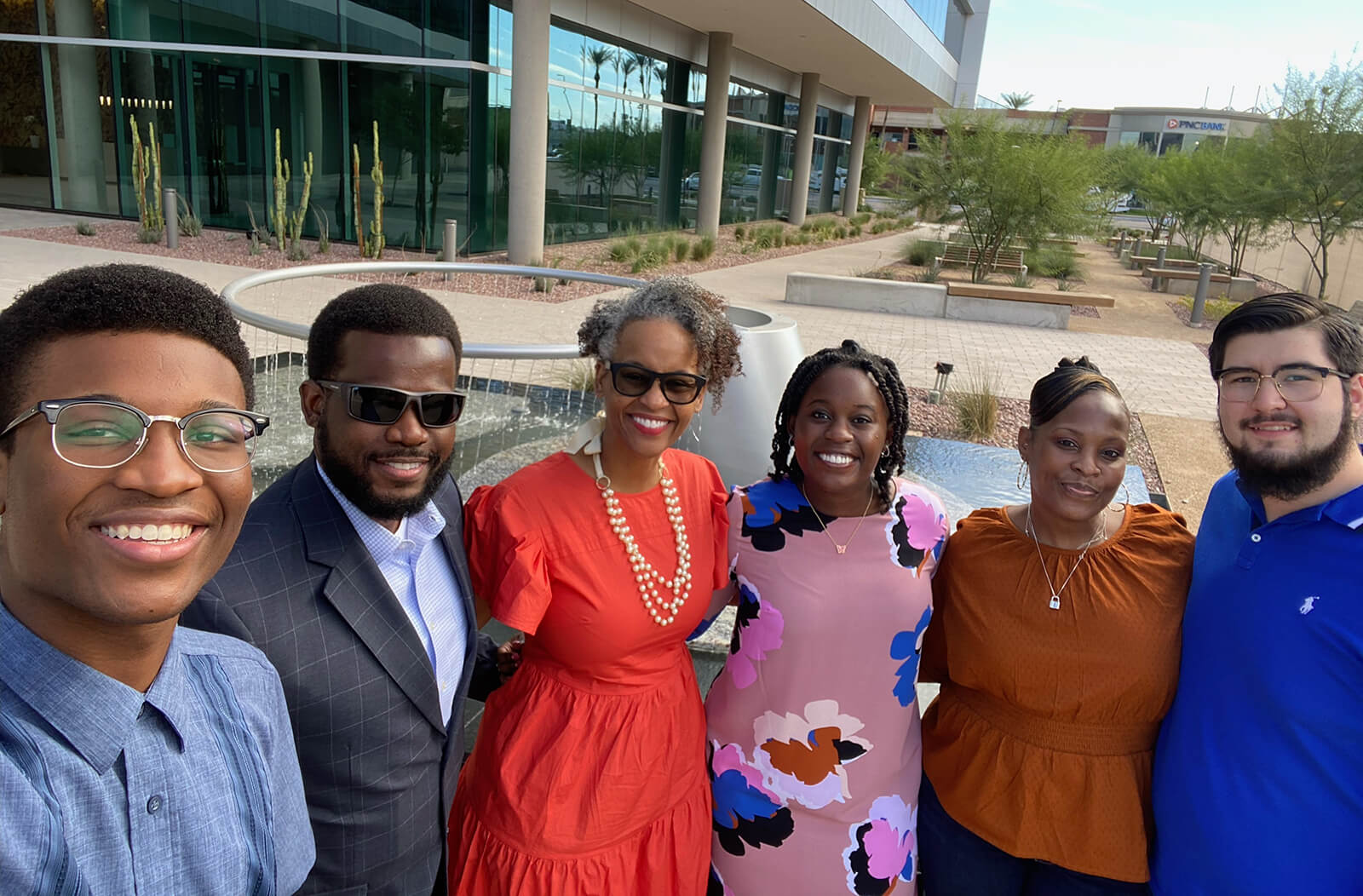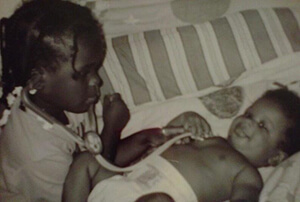
White Coat Profile: Raquel Moore

The White Coat Ceremony marks the first time a medical student will don his or her white coat, the defining symbol of a physician. The coat bestows a great honor on each student, and with it comes a responsibility to uphold the trust of every patient they will encounter. The Class of 2026 will receive their white coats on July 15 during a ceremony that begins at 3:30 p.m. at Symphony Hall in downtown Phoenix.
Meet Raquel Moore

It was when she was studying for her minor that she learned more about the intersection between African American history and medicine in the United States, and it furthered her interest in becoming a physician.
While working toward becoming the first physician in her family has presented numerous challenges, Moore credits her parents for instilling in her the value of hard work. She also is thankful for her boyfriend and the rest of her family for being her biggest supporters.
Path toward Medicine
What was the spark that led you to become a physician?
My parents gave me a plastic doctor set as a child, and I would play “doctor” on my stuffed animals, dolls and baby brother. As a young girl, I thought physicians were fascinating because they were able to “fix” people who were sick or hurting, and I wanted to do that. Through my education, I developed a love for science, and I realized early in high school my dream was to become a physician, which would enable me to give back to my community.
Never once have I been seen by an African American female physician. In some cases, when I asked to be seen by at least a female, there were none. As a young girl, I would have felt much more comfortable being seen by a female physician. Representation is very important, and I not only want to provide outstanding care for all my patients, but I also want to be a role model for young girls of every color.
My shadowing experiences have confirmed my dream of becoming a physician. While shadowing, I saw instances of deep connections between physicians and their patients. A defining moment for me was when I shadowed a neurologist who keeps a whiteboard in all her patient rooms. She regularly would draw out anatomical structures for her patients to help explain physical ailments and procedures and made it a point to make sure patients truly understood. Seeing that level of compassion in conjunction with medicine and science and seeing genuine care was inspiring.
My love for Black history also influenced me. Black History Month has never been enough for me. Most of what was taught were things my parents had already taught me, or something I had already read about. The same information was repeated year after year.
It took me until junior high to not feel embarrassed for caring so deeply about something that some seemed to have no interest in. It did not matter once I got to high school anyways, because Black history was not part of any curriculum. When it was time for me to start thinking about college and career aspirations, I was conflicted.
I loved Black history, but being a historian was not something I was interested in. With all due respect, imagining my life in a library or academic space sounded dreadful. I was interested in science and medicine.
I started noticing how there were not any Black physicians at my doctor’s office, and during Heart Health Month, or Breast Cancer Awareness Month, Black people seemed to be more likely to get devastating diseases. People who looked like me seemed to be sicker, but they were not interested in going to the physician because many did not trust them. I decided I wanted to help change that, and I could start that change by becoming a physician.
The College of Medicine – Phoenix
Why did you choose the College of Medicine – Phoenix?

I was drawn to the opportunities the college offers like the Certificate of Distinction in Service and Community Health, and the clinical partnerships that highlight that commitment. Additionally, the record of distinction for current research efforts was something I was interested in as well.
I loved that all of this was in the state I had grown to love and is near my immediate family in the Valley.
What excites you most about beginning medical school?
I’m most excited for the exposure to areas of medicine I don’t even know exist yet. I have shadowed physicians in a few different specialties, but I cannot wait to learn about and experience medicine more broadly. Additionally, I am looking forward collaborating and networking with my new educational community.
Significance of the White Coat
What does the white coat mean to you?
To me, the white coat means trust, care and expertise. Physicians are there for their patients during life’s most important milestones and vulnerable moments, applying extensive years of training. Physicians impact people’s lives in unique and personal ways that other professions can’t. The white coat symbolizes the commitment to improving the lives of others.
About the College
Founded in 2007, the University of Arizona College of Medicine – Phoenix inspires and trains exemplary physicians, scientists and leaders to advance its core missions in education, research, clinical care and service to communities across Arizona. The college’s strength lies in our collaborations and partnerships with clinical affiliates, community organizations and industry sponsors. With our primary affiliate, Banner Health, we are recognized as the premier academic medical center in Phoenix. As an anchor institution of the Phoenix Bioscience Core, the college is home to signature research programs in neurosciences, cardiopulmonary diseases, immunology, informatics and metabolism. These focus areas uniquely position us to drive biomedical research and bolster economic development in the region.
As an urban institution with strong roots in rural and tribal health, the college has graduated more than 1,000 physicians and matriculates 130 students each year. Greater than 60% of matriculating students are from Arizona and many continue training at our GME sponsored residency programs, ultimately pursuing local academic and community-based opportunities. While our traditional four-year program continues to thrive, we will launch our recently approved accelerated three-year medical student curriculum with exclusive focus on primary care. This program is designed to further enhance workforce retention needs across Arizona.
The college has embarked on our strategic plan for 2025 to 2030. Learn more.